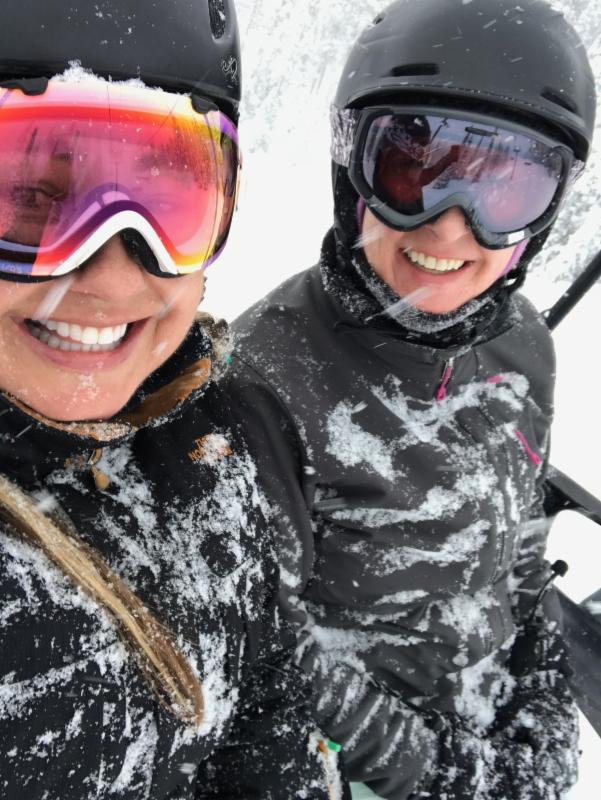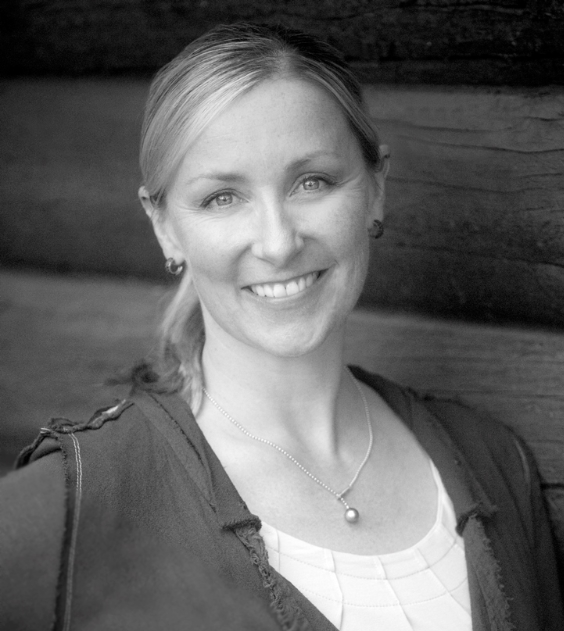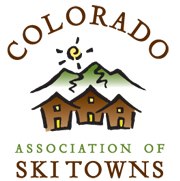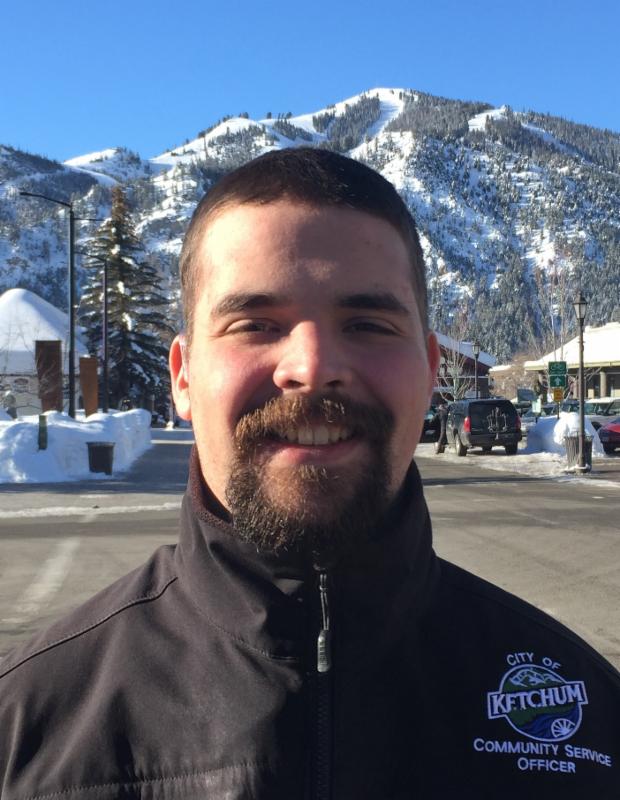|
Punxsutawney Phil predict 6 more weeks of winter. ENJOY!
|

City of Ketchum
P.O. Box 2315
480 East Avenue N.
Ketchum, Idaho 83340
"Small Town, Big Life"
|
|
Inform. Celebrate. Involve.
|
|
 Politics has heated up over the past couple of weeks. The nation has a new president who is busy blazing his course and the Idaho State Legislature has entered its 64th session. Both entities are penning documents that could ironically limit Ketchum's ability to govern independently.
In Ketchum we have a strong sense of community. We value a varied demographic, responsible stewardship of the environment, and a dynamic economy that provides housing and job opportunities. The people of Ketchum have a legacy of voicing their concerns on issues such as short-term rentals, demographics and management of the environment. These concerns have been enacted into local policies and regulations.
Regulations and deregulations offered from the state and national government could have tremendous effect on Ketchum's ability to support these values. I am closely watching proposed
bills on immigration, vehicles, short-term rentals and property tax. Many of these could affect Ketchum, and I am voicing concern to our state representatives in both Boise and Washington.
Our state representatives, Sen. Michelle Stennett, Rep. Steve Miller and Rep. Sally Toone will all be here Friday, Feb. 10, at 5:30 in Ketchum City Hall Chambers. They are hosting a town hall to hear your concerns regarding pending bills and more. Please consider attending or, if not possible, contact them via email.
It is an honor to serve you.
Nina
Sen. Michelle Stennett
Rep. Steven Miller
Rep. Sally Toone
|
|
ASK NINA
|

Q. Just curious, the speed limit heading south out of Ketchum changes to 35 miles per hour just before the Ski View complex. Is it possible to move the sign further south possibly just past the turn to River Run Lodge? [...] There is very limited sight with the snow and this is compounded with everyone speeding up to 35 miles per hour.
A.
Idaho Transportation Department governs the speed limit on Highway 75. Traffic Engineer Bruce Christensen tells us that a recent study (2012 and 2013) established the current speed limit and that signing changes alone are not likely to influence driver behavior, even with the assistance of law enforcement. His recommendation is to improve visibility relative to the recent snow banks prior to any other changes. ITD and city snow removal crews are working diligently to remove snow and widen streets to improve visibility and accessibility for emergency vehicles.
Note: If you submit a question to "Ask Nina," your name may be published unless you request that it be withheld.
|
|
COUNCIL AGENDA - MEETING INFORMATION - COMMENT
|
Stay involved. Included here are links to the Monday, Feb. 6,
Council agenda and Council meeting information. At this meeting, Council will consider amendments to the Dark Skies ordinance as Ketchum prepares its application to become an International Dark-Sky Association Dark Sky Community. Council will receive updates from Sun Valley Economic Development and the upcoming Sun Valley Film Festival, and will discuss an election to extend the 1% Local Option Tax for Air Service.
It is the responsibility of the city to inform the public and gain public input. Please provide the city with your opinion and comments by attending Monday's meeting beginning at 5:30 p.m. in Ketchum City Hall, 480 East Ave., N., or send an email to
[email protected].
|
|
FLOOR AREA RATIO (FAR): WHAT IT MEANS AND WHY IT'S IMPORTANT
|
|
|
 |
| Kneebone Building (Fifth and Washington) - 1.42 FAR |
 |
Floor Area Ratio (FAR), a globally-recognized metric used to guide development density while providing design flexibility, is defined as Floor Area divided by Development Site Area, with FAR of 1.0 implying floor area equivalent to total lot size. A one-story building covering 100%, and a four-story building covering a quarter of its lot, each has FAR of 1.0, but with quite different configurations. As FAR increases, so too does the mass and scale of the building.
 |
|
 |
Mountain West Bank Building (Leadville and Sun Valley Road - 2.21 FAR |
Ketchum and its residents have long-supported preserving our small mountain town character in harmony with the natural environment. Thus, floor area was first regulated in the Village of Ketchum's land use and building regulations ordinance in 1961 and again after Ketchum incorporated and passed the first comprehensive ordinance for the city in 1974. In 1985, the City incorporated FAR into its zoning code, establishing a gross maximum of 1.4 in the Community Core. In 2000, concerns over dramatic increases in construction of larger buildings led Ketchum to temporarily reduce the density incentives that had been in place at the time. During this stay, the City held a series of workshops to clarify public sentiment, finding that the community largely preferred buildings with gross FAR of 1.4 or less and considered those higher than three stories unacceptable unless the additional building mass provided for affordable housing. Current FAR regulations governing downtown Ketchum, in place since 2006, reflect this outlook: Buildings in the Community Core are allowed gross FAR of 1.0, with incentives up to 2.25 when community housing requirements are met.
|
|
 |
| Zions Bank Building (Main and Sun Valley Road) - .97 FAR |
 |
The scale and size of buildings is an important determinate of urban character. Ketchum's ordinances are in keeping with those of other small mountain communities. In medium-density residential areas, Aspen allows FARs of 0.8 for new development, 1.0 for existing development, and up to 1.5 for multi-family residences. In its Commercial Core, FARs up to 2.0 for commercial uses and 2.75 for cultural and other amenities are allowed, with maximums subject to applicable design, dimensional, view plane, and public amenity standards not achievable for every lot. Park City affords FARs of 0.7-1.0 for non-residential uses in its Historic Residential Commercial zone and maximum potential of 4.0 in its Historic Commercial Business zone; buildings with FARs greater than 1.5 are subject to off-street parking requirements.
Larger communities are also committed to maintaining downtown character: Boulder's downtown business zones have base FARs ranging from 1.0-1.7 with allowances to 2.0-2.7 for projects including residential housing and on-site parking. Boise sets maximum FARs of 1.5 for residential and 4.0 for non-residential uses, while Portland, Oregon, recently adopted regulations providing maximum base FAR of 1.5 in its small-scale commercial mixed-use zones, with allowances of up to 2.5 where affordable housing, commercial space, and other desirable characteristics are included.
Ketchum maintains its commitment to building and maintaining a vibrant downtown core by providing both development flexibility and adequate open space for landscaping, walkways, pocket parks, gathering spots, outdoor seating, winter sunlight, public art, and other amenities critical to preserving the mountain town character we all love. A reasonable FAR for development in the Commercial Core is an important tool in the City's efforts to uphold its promise to the public.
|
|
WHY YOU SHOULDN'T FEED WILDLIFE
|
|
|
 |
| Photo courtesy of Michael Olenick |
 |
With elk, moose and other wildlife coming into town looking for food, the
Idaho Department of Fish & Game (IDFG) is asking well-meaning citizens to avoid giving them inappropriate food that may cause the animals to sicken or die.
Mule deer are particularly sensitive to food that is inappropriate for their winter metabolisms, which are designed specifically to process woody material. What people think of as high-energy food, such as alfalfa pellets, apples and carrots, can cause mule deer to have diarrhea that leads to dehydration and sometimes death. Establishing private feed sites also leads to predatory animals entering the area.
IDFG has established feeding sites for elk and deer in the Wood River Valley for these basic reasons:
1. Human safety - Animals are "baited" away from dangers such as roadways and domestic dogs.
2. Regulatory - Animals are baited to keep them away from livestock feed lines and to avoid depredation on tree nurseries and stored crops. IDFG has a responsibility to intervene when wildlife is threatening a person's livelihood, although not when private landscaping is damaged by foraging.
Here are a few items to bear in mind:
- Never approach wildlife. Your presence alarms the animals, leading to depletion of precious energy reserves. Animals may also be pushed away from bedding areas where they spend the majority of their time for energy conservation and into dangerous areas such as city streets or state highways.
- Never feed wildlife. Human food sources may cause wild animals to become ill or die.
- Be mindful of your recreational pursuits. Snow machining, snowshoeing and skiing can be detrimental to wildlife. In particular, activity occurring above animals on hillsides is a major threat. Animals will waste energy moving away from you. These activities will push wintering elk to valley floors where they are in more danger from vehicles and domestic animals.
- Keep your pets away from wildlife. Owners of domestic dogs caught harassing or killing wildlife will be cited.
IDFG representatives caution people that animals will indeed perish for numerous reasons over this winter and throughout the year. Feed sites established by the agency do not prevent loss of wildlife. Private feed sites may contribute to an even higher rate of population decline due to the distribution of inappropriate food and artificial concentration of animals.
Questions may be directed to the Idaho Department of Fish & Game at (208) 324-4359.
|
|
LEARNING FROM OTHER SKI TOWNS
|

A strong Comprehensive Plan - such as the one Ketchum adopted in 2014 -- is a key to keeping ski communities vibrant and inviting to year-round residents. This was one of the conclusions at the recent meeting of the Colorado Association of Ski Towns, hosted by Ketchum.
The official name of the group is the Colorado Association of Ski Towns, yet members include Ketchum and the Wyoming communities of Jackson and Teton Village, as well as the Colorado communities of Aspen, Avon, Breckenridge, Crested Butte, Dillon, Durango, Frisco, Gunnison County, Snowmass Village, Steamboat Springs, Summit County, Telluride, Vail and Winter Park.
Ketchum Mayor Nina Jonas, council members and city staff attended the conference to share experiences, discuss challenges in resort communities and offer solutions.
Participants also experienced Ketchum and the welcoming hospitality of the community. They toured the city with stops at Ketchum Innovation Center, Vyykn Water offices, the Christina Potters Ice Rink and the wastewater treatment plant, and heard from Don Schuster of the Limelight Hotel and Tim Silva of Sun Valley Company.
Without a doubt, all the communities share similar challenges related to producing affordable housing and a variety of housing options, attracting year-round residents, keeping a community authentic and preserving its character, managing development pressures and addressing short-term rentals. Everyone agreed that despite the pressures to veer off the path, officials must stay focused and committed to implementing the community's values and vision as identified in a Comprehensive Plan. Making a plan become reality takes time and resolve.
In Ketchum we are fortunate. In 2014 community members identified their vision for the future in the Comprehensive Plan. We know where the community wants to go. While there may be debate about how to get there, the future destination is clear.
|
|
MEET NEW MEMBERS OF KETCHUM POLICE
|
Ketchum Police Officer Michael Flood and Community Service Officer Josh Hames are both enthusiastic about their new jobs here.

Flood, who grew up in Southern California, moved to Boise in 2014 and completed his degree in criminal justice at the College of Western Idaho this past summer.
"There is so much that I love about this new job," he said. "I was first attracted to the area because of the gorgeous scenery. I can make a positive impact on this great community and it doesn't feel like work at all."
In his free time, Flood enjoys fly-fishing and watching football.
 Hames was born in Arco, has family in the Arco/Mackay and Blackfoot/Pocatello areas, and has long known Southeastern Idaho. He has lived around the world, including stints in New York and Germany, with his father, an Army veteran. Hames received a B.A. in criminal justice from Washington State University last May.
"I knew I wanted to start my career in this area," he said. "Looking at the mountain every day and having that as my 'office' is an amazing feeling. What I like most, though, is the people in this community. Working with such welcoming people is a blessing."
His hobbies include hiking, fishing and hunting.
|
|
BUSINESS NEWS
|
City Council to Consider Extending LOT for Air Service
The City Council Monday will consider asking voters to extend the 1 percent local option tax for air service and marketing.
Wood River Chamber Awards
|
|
WHAT WE'RE READING
|
|
Mayor Nina Jonas
Jennifer L. Smith, director of parks and recreation
|
|
NEWS AT A GLANCE
|

Stauffacher Earns Arborist Certification
Facility Maintenance Supervisor Juerg Stauffacher recently became an
International Society of Arboriculture (ISA) Certified Arborist Municipal Specialist®. Stauffacher also holds an ISA Certified Arborist® credential. Municipal arboriculture is a specialized field of arboriculture and urban forestry that involves planning, planting, establishing, protecting and managing public trees and associated vegetation on public land in communities. (Happy Birthday Juerg!)
Honoring Snow Removal Crew
City Council plans to honor snow removal crews Monday for their hours of work this year - and the additional hours that are expected this weekend. The city appreciates your patience as they work to keep up with the snow that has been such a boon for recreation and our economy.
Legislators Begin District Tour
State representatives, Sen. Michelle Stennett, Rep. Steve Miller and Rep. Sally Toone will be holding a Town Hall on Feb. 10 at 5:30 in Ketchum City Hall. Please attend to hear what your legislators are doing for our city and present your issues. The meeting will also be live-streamed and can be accessed
here.
Code Red Update
Unwanted notifications from the Blaine County Emergency Alert System have been resolved. Users of the alert system should no longer receive general notifications, such as the snow removal operations alert, unless they have been specifically selected by the user. If you would like to receive general notifications, you must sign up for them here. If you need assistance, please contact Blaine County Emergency Communications at 788-5558.
Property Tax Reduction Filing Deadline
The deadline for property tax reduction applications (circuit breaker) and homeowner's exemption is April 18. For qualification and application information, call 788-5535 or visit the Blaine County Assessor webpage.
Backcountry Film Festival Feb. 9
Winter Wildlands Alliance, celebrating backcountry snowsports communities in films that capture the spirit of winter, holds it's 12th Annual Winter Wildlands Alliance Backcountry Film Festival. The festival takes place at The Sun Valley Opera House on Thursday, Feb. 9, from 6-9 p.m. Proceeds benefit Nordic and Backcountry Skiers Alliance of Idaho, Friends of the Sawtooth Avalanche Center and Winter Wildlands Alliance.
"Love Shouldn't Hurt" Event Set for Saturday
|
|
MEETING INFORMATION
|
City Council
 Attend the next City Council meeting at 5:30 p.m. on Monday, Feb. 6. City Council meetings are held on the first and third Monday of each month in Ketchum City Hall. Click here to see the agenda and staff reports or scan the QR code. Attend the next City Council meeting at 5:30 p.m. on Monday, Feb. 6. City Council meetings are held on the first and third Monday of each month in Ketchum City Hall. Click here to see the agenda and staff reports or scan the QR code.
Planning and Zoning Commission
 Attend the next Planning and Zoning Commission meeting at 5:30 p.m. on Monday, Feb. 13. P&Z meetings are held on the first Monday of each month in Ketchum City Hall. Click here for agendas and staff reports or scan the QR code. Attend the next Planning and Zoning Commission meeting at 5:30 p.m. on Monday, Feb. 13. P&Z meetings are held on the first Monday of each month in Ketchum City Hall. Click here for agendas and staff reports or scan the QR code.
Public Comment
If you cannot attend the Council or P&Z meetings and would like to express an opinion, please submit your comments via email to [email protected]. Your input and engagement is encouraged. All comments will be reviewed.
|
Subscribers
You are receiving this email because you have requested it or done business with the City of Ketchum in the past. We appreciate our residents, businesses and visitors and look forward to telling you more about Ketchum and receiving your input. To subscribe, click here. If you would like to unsubscribe, please click on the link below.
|
|
City of Ketchum
208-726-3841
|
|
|
|
|
Copyright © 2014. All Rights Reserved.
|
|
|
|